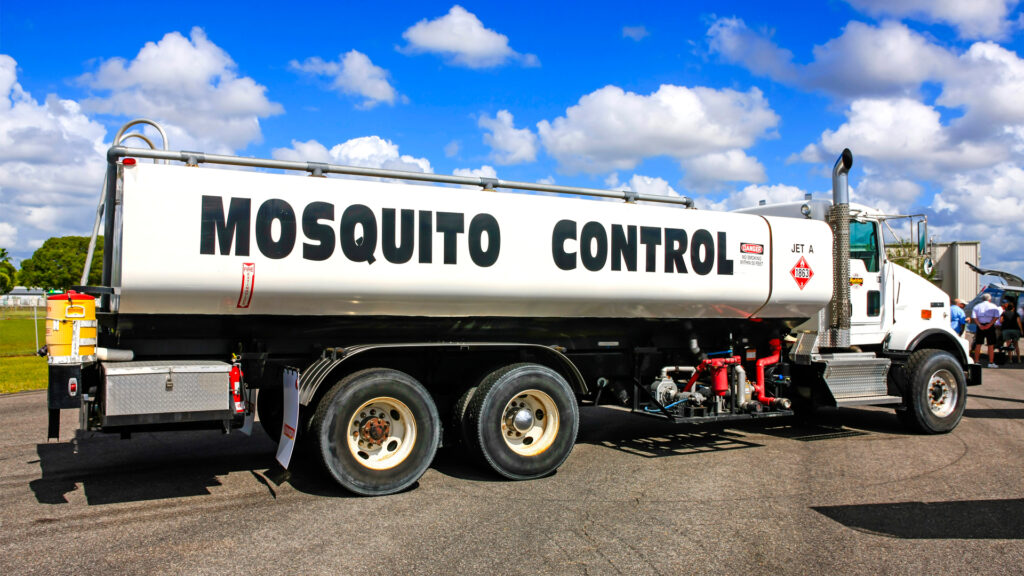By Anh Le, Florida Clinicians for Climate Action
One hot summer day in 2002, my mother strapped a helmet on my head and navigated the dirt roads of Vietnam on her scooter to get me to our local hospital. I was 6 years old when I first fell seriously ill with recurrent fevers, chills, rashes, nausea and vomiting. My mother finally decided that home remedies could not get me better and took me to our provincial hospital, where I was immediately admitted for dengue fever.
In Vietnam, mosquito-borne diseases are extremely common due to its tropical climate characterized by high temperatures and humidity throughout the year. Growing up there, I was frequently advised to wear long sleeves, apply insect repellent and burn special incense to keep mosquitoes away.
Every month, the local public health department would conduct aerial spraying in the neighborhood. Large-scale public health campaigns were launched to educate people about strategies to limit the spread of mosquito-borne diseases. Despite these efforts to prevent mosquito-borne diseases, children in Vietnam were vulnerable to infectious diseases such as malaria, dengue and Japanese encephalitis.

Fast forward two decades, and I am hearing the same messages from my local health department – but this time it’s in Florida, where I attend medical school. The state recently had eight confirmed cases of locally acquired malaria, which prompted the Florida Department of Health to issue a statewide mosquito-borne illness advisory. Additionally, three cases of locally acquired dengue fever were reported in Miami-Dade County this year.
Research published by the National Institute of Health indicates that the lifecycle of mosquitoes is intricately linked to the environmental temperature, as it affects their eggs’ viability and hatching time. Models show that the heat we are seeing with a warming climate increases the risk of mosquito-borne diseases such as malaria and dengue.
Heat does more than just affect the mosquito lifecycle; it is the No. 1 weather-related killer. In Miami-Dade County, heat kills an average of 34 people a year and hospitalizes hundreds more. More than 300,000 people work outside there and outdoor workers are 35 times more likely to die of a heat-related illness than the general population. Most recently, a 29-year-old agricultural worker died after complaining of cramps and collapsing in the fields in Homestead.
As a medical student in Miami-Dade County, I am glad to see Mayor Daniella Levine Cava and local leaders taking action to protect its citizens. The mayor named the first chief heat officer in the world. They established a Climate & Health Task Force, which resulted in an Extreme Heat Action Plan. They established an official Heat Season, which runs from May 1 through Oct. 31.
And now, the Miami-Dade County Commission has passed the first vote on historic worker protections. The nonprofit organization WeCount, as part of its Que Calor campaign to protect outdoor workers, petitioned the County Commission to pass the ordinance

The ordinance would establish a heat exposure safety program on the best ways to minimize heat-related illnesses. Workers would get 10 minutes of paid rest and water breaks every two hours on days with a heat index of 90-plus degrees. The measure would also create an Office of Workplace Health and Safety to help enforce these policies.
The ordinance passed unanimously on first reading but awaits a September vote for final approval. Legislation like this and other actions are needed to improve the health of our communities and save lives. These are early steps in addressing the health impacts of a warming planet, but more action is needed to avoid the devastating effects of vector-borne diseases and extreme heat events.
My own experience with dengue fever 20 years ago inspires me today to seek a career in medicine and public health. I would have never imagined that I would be 10,000 miles from my home and hearing about cases of mosquito-borne diseases. Climate change has made this a reality.
We must adapt to this changing climate but, more importantly, we must reduce the dangerous climate pollution warming the planet and driving these health threats.
Anh Le, a member of Florida Clinicians for Climate Action, is a MD-MPH student (Class of 2024) at the University of Miami Miller School of Medicine.
Sign up for The Invading Sea newsletter by visiting here. If you are interested in submitting an opinion piece to The Invading Sea, email Editor Nathan Crabbe at nc*****@*au.edu.



